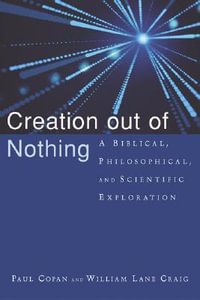When is the last time you heard a sermon, Bible study, or even read the Letter to Philemon? For some the answer is ""recently"" but for too many the answer is ""it has been a long time"" or worse yet ""never."" Why is it that Philemon, though included in the Christian canon, is not read and studied as a text with theological depth that is helpful for serious study and preaching? In A Companion to Philemon, Lewis Brogdon insists that a part of the reason is the interpretation that Paul is sending a thieving runaway slave back to his good master. This interpretation is not only problematic, it is also theologically limiting and offers the church very little to reflect on as we face mammoth issues of inclusion and fellowship such as racism, sexism, and classism. A Companion to Philemon challenges the church to reimagine the interpretation of Philemon by focusing on the role exclusion had in the events that led to his departure from Philemon. Using the issue of exclusion, Brogdon takes the interpretation of Philemon in new directions that not only invite the church to read Philemon but also challenge us to examine both our understanding and practice of Christian fellowship today. ""Brogdon offers contemporary readers valid reasons to engage the Apostle Paul's correspondence to a friend, fellow Christian, church leader and slave-owner. His interpretation wisely questions the traditional and popular 'slave flight' thesis--exegetically, historically, and culturally--and proposes an alternative paradigm. Even if I may quibble with some of Brogdon's exegetical decisions, I highly recommend this short book on this brief letter to all interested in learning about the complexities of early Christianity, the origins of our hermeneutical decisions, and the challenges of contemporary faith. A Companion to Philemon is a worthwhile read for every person who reads the ancient Pauline letters in light of themes on human dignity."" --Emerson B. Powery, Messiah College, Mechanicsburg, PA ""Lewis Brogdon's reading of the Epistle to Philemon as a call for ""inclusive koinonia"" is highly readable, yet quite radical in its implications for the church. Brogdon shows how--for two millennia--we have read this letter in a way that uncritically rationalizes and sanctifies oppressive norms, institutions, and practices. His counterargument that Paul wrote the letter to subvert Philemon's exclusion of Onesimus and other slaves from Christian fellowship makes better sense of the historical and exegetical evidence, and helps us to see the gospel that has for so long been hiding in plain sight!"" --Susan R. Garrett, Louisville Presbyterian Theological Seminary Lewis Brogdon is the Provost at Simmons College of Kentucky in Louisville and a former professor of biblical studies at Claflin University and Louisville Seminary. He is the author of several books such as Hope on the Brink: Understanding the Emergence of Nihilism in Black America (Cascade, 2013) and The New Pentecostal Message? An Introduction to the Prosperity Movement (Cascade, 2015).
Industry Reviews
“Brogdon offers contemporary readers valid reasons to engage the Apostle Paul’s correspondence to a friend, fellow Christian, church leader and slave-owner. His interpretation wisely questions the traditional and popular ‘slave flight’ thesis—exegetically, historically, and culturally—and proposes an alternative paradigm. Even if I may quibble with some of Brogdon’s exegetical decisions, I highly recommend this short book on this brief letter to all interested in learning about the complexities of early Christianity, the origins of our hermeneutical decisions, and the challenges of contemporary faith. A Companion to Philemon is a worthwhile read for every person who reads the ancient Pauline letters in light of themes on human dignity.”
—Emerson B. Powery, Messiah College, Mechanicsburg, PA
“Lewis Brogdon’s reading of the Epistle to Philemon as a call for "inclusive koinonia" is highly readable, yet quite radical in its implications for the church. Brogdon shows how—for two millennia—we have read this letter in a way that uncritically rationalizes and sanctifies oppressive norms, institutions, and practices. His counterargument that Paul wrote the letter to subvert Philemon’s exclusion of Onesimus and other slaves from Christian fellowship makes better sense of the historical and exegetical evidence, and helps us to see the gospel that has for so long been hiding in plain sight!”
—Susan R. Garrett, Louisville Presbyterian Theological Seminary

























